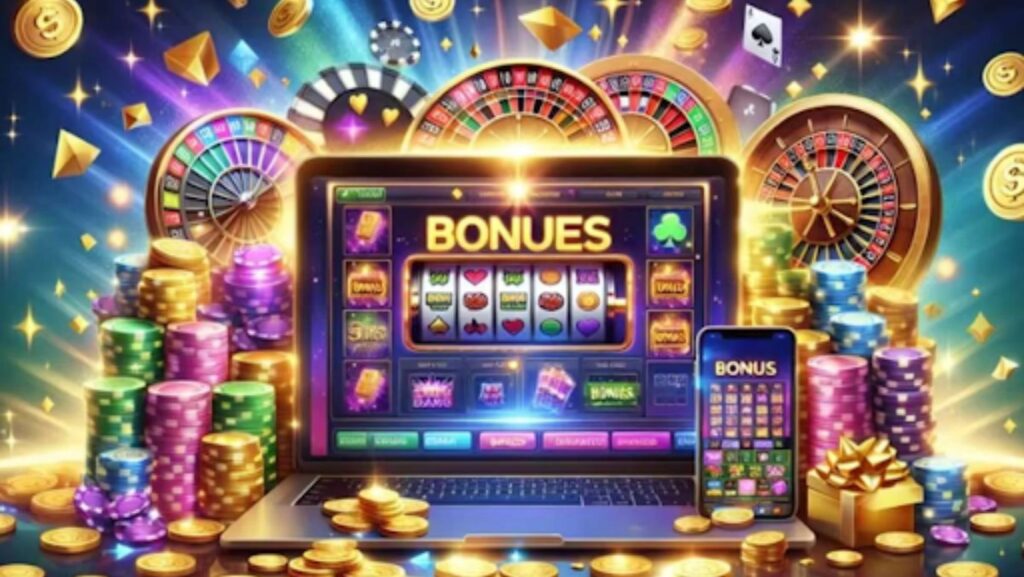Online slots have become one of the most popular forms of entertainment in the digital age. With their flashing lights, catchy sounds, and the promise of big wins, it’s no wonder players keep coming back for more. But have you ever wondered what’s really going on in the minds of online slot players? Why do we keep spinning, even when we know the odds are stacked against us? In this article, we’ll explore the psychology of online slot players, looking at why these games are so addictive and what keeps us coming back for more.
The Thrill of the Spin: Understanding the Excitement
One of the main reasons players love online slots is the sheer excitement of each spin. Every time you hit that spin button, you’re opening the door to the possibility of a huge win. The random nature of the game makes it unpredictable, and that uncertainty creates an adrenaline rush. This excitement is amplified by the colorful visuals and engaging sounds that accompany each game.
But what makes these thrills so addictive? It all comes down to the brain’s response to reward. When players win, their brains release a burst of dopamine, the feel-good chemical associated with pleasure and satisfaction. Even small wins can trigger this response, making the game feel rewarding and encouraging players to keep spinning. This cycle of anticipation and reward is a powerful psychological driver, and it’s one of the reasons why online slots on https://www.1bet2umy.net/my/en-us/ can be so captivating.
The Role of Randomness and the Gambler’s Fallacy
Another factor contributing to the popularity of online slots is their randomness. Slot machines, both physical and online, use a Random Number Generator (RNG) to ensure that every spin is independent of the last. However, this randomness can often lead to a psychological phenomenon known as the gambler’s fallacy.

The gambler’s fallacy is the belief that if a machine hasn’t paid out in a while, it’s “due” for a win. This fallacy leads players to believe that they can predict the outcome of future spins based on past ones. In reality, each spin is entirely random, and the machine doesn’t have a memory. Despite this, players are often driven by the idea that they are “close” to hitting a big jackpot, which encourages them to keep playing. It’s a classic example of how our brains can be tricked into chasing an elusive reward.
The Influence of Bonus Features and Free Spins
One of the most enticing aspects of online slots is the variety of bonus features and free spins. These features are designed to keep players engaged and enhance the excitement of the game. Free spins, in particular, are a huge draw because they offer players the chance to win without spending more money.
TThese features play into a psychological concept called variable reinforcement, which is the same principle that makes slot machines so addictive. In variable reinforcement, rewards are given at unpredictable intervals, which keeps players on edge, wondering when their next reward will come. This type of reinforcement is much more effective at keeping people hooked than predictable rewards. The bonus features and free spins in online slots are perfect examples of how casinos use variable reinforcement to their advantage. If you’re looking to enjoy free slots with bonuses, Gambino Slots, a popular social casino, offers a fun and risk-free way to experience exciting slot gameplay with rewarding bonus features
The Social Aspect: Sharing Wins and Competing
Another psychological factor in the appeal of online slots is the social aspect. Many 1bet2u online slot games today offer features like leaderboards, where players can see how they stack up against others. This can create a sense of competition and drive players to keep playing to improve their standing. Additionally, players can share their big wins on social media, creating a sense of community and connection with others who enjoy the same games.
The social aspect of online slots plays into our natural desire for recognition and validation. Sharing a big win with friends or boasting about a lucky streak can enhance the overall experience and make players feel like they are part of something larger than themselves.
The Impact of Loss Aversion on Online Slot Play
Finally, loss aversion plays a crucial role in why people continue to play online slots, even when they’ve been losing. Loss aversion is a psychological phenomenon where people tend to feel the pain of losing much more intensely than the pleasure of winning. In the context of online slots, players who are on a losing streak may keep playing in an attempt to recoup their losses. This behavior is driven by the belief that a win is “due,” and the pain of losing outweighs the thrill of the potential reward.

This drive to win back losses is often referred to as chasing losses, and it’s one of the key reasons why players may continue playing even when it’s no longer enjoyable or financially wise. The desire to avoid the feeling of loss can be a powerful motivator that keeps players coming back to spin the reels.
Conclusion: Why We Keep Spinning
The psychology behind online slot play is complex and multifaceted. From the thrill of the spin to the influence of bonus features, free spins, and loss aversion, there are many psychological factors at play. Ultimately, it’s the combination of unpredictable rewards, dopamine-driven excitement, and social engagement that keeps players returning to their favorite slots.
Understanding these psychological drivers can help players become more mindful of their habits and make informed decisions about when to spin and when to stop. Whether you’re a casual player or a seasoned slot enthusiast, it’s essential to recognize the power that these games can have on our minds and emotions. So, the next time you hit spin, remember—you’re not just playing a game; you’re engaging in a carefully crafted experience designed to keep you hooked.


